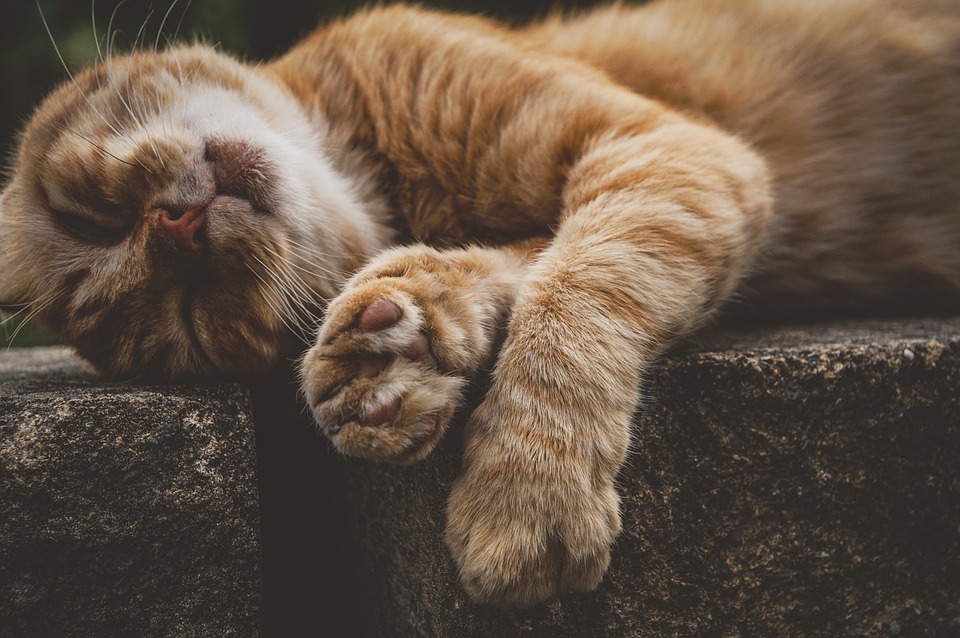Cats are known for their independent and mysterious nature, often displaying various behaviors that may leave their owners puzzled. One common issue faced by cat owners is excessive vocalization during the nighttime. If your furry friend is keeping you up all night with their loud meowing, it’s essential to understand the possible reasons behind this behavior and how to address it appropriately. In this article, we will explore some practical tips and strategies to help you handle excessive vocalization in cats at night.
Understanding the Reasons Behind Excessive Vocalization
Before diving into solutions, it’s crucial to comprehend the underlying causes behind your cat’s excessive vocalization during nighttime. Here are some common reasons:
1. Attention-seeking behavior: Cats are known to be masters at getting their owner’s attention, and excessive vocalization can be a way for them to express their needs or desires.
2. Hunger or thirst: If your cat’s meowing is accompanied by other signs of hunger or thirst, such as pacing near their food bowl or excessive drinking, it could indicate they need to be fed or provided with fresh water.
3. Medical issues: Cats may become more vocal at night if they are in pain or discomfort due to an underlying health condition. It’s important to rule out any potential medical issues by consulting with a veterinarian.
4. Anxiety or stress: Cats are creatures of habit, and any disruptions to their routine or environment can cause anxiety or stress. Excessive vocalization may be their way of expressing these emotions.
5. Boredom or lack of stimulation: Cats are highly active animals, and if they don’t receive enough mental and physical stimulation during the day, they may become restless and vocalize more at night.
Addressing Excessive Vocalization in Cats
Now that we have a better understanding of the possible reasons behind your cat’s nighttime vocalization, let’s explore some practical strategies to address this behavior:
1. Establish a consistent routine: Cats thrive on routine, so try to establish a daily schedule for feeding, playtime, and sleep. Providing a structured routine can help reduce anxiety and provide a sense of security for your cat.
2. Ensure physical and mental stimulation: Engage your cat in regular play sessions throughout the day, using interactive toys and puzzle feeders to keep them mentally stimulated. Exhausting their energy during the day will increase the likelihood of a peaceful night’s sleep.
3. Create a calm sleeping environment: Make sure your cat has a comfortable and quiet sleeping area. Provide a cozy bed, away from any noise or disturbances that may trigger excessive vocalization.
4. Avoid reinforcing the behavior: As difficult as it may be, try not to respond to your cat’s nighttime vocalization with attention, as this may reinforce the behavior. Instead, wait for a moment of quiet before offering attention or treats.
5. Consult with a veterinarian: If you’ve tried various strategies and your cat’s excessive vocalization persists, it’s advisable to consult with a veterinarian. They can help rule out any underlying medical issues and provide guidance on behavior modification techniques or recommend a professional animal behaviorist if necessary.
FAQs (Frequently Asked Questions)
Q: Is excessive vocalization during nighttime in cats a sign of illness?
A: Excessive vocalization can be a sign of an underlying medical issue, especially if it’s accompanied by other symptoms like changes in appetite, lethargy, or vomiting. It’s essential to consult with a veterinarian to rule out any potential health problems.
Q: How long does it take to address excessive vocalization in cats?
A: The time it takes to address excessive vocalization in cats can vary depending on the underlying cause and the cat’s individual temperament. With consistency and appropriate interventions, improvements can be seen within a few weeks, but it may take longer in some cases.
Q: Can I use sedatives to calm my cat’s excessive vocalization?
A: The use of sedatives should only be considered under the guidance of a veterinarian. It’s crucial to address the root cause of the vocalization rather than relying solely on sedatives, as they may mask underlying issues without resolving them.
Q: Will getting another cat as a companion help reduce excessive vocalization?
A: Introducing another cat as a companion may help reduce excessive vocalization, especially if the underlying cause is loneliness or boredom. However, it’s important to introduce the new cat properly and ensure compatibility between the two cats.
Remember, each cat is unique, and what works for one may not work for another. Patience, understanding, and consistent efforts are key to addressing excessive vocalization in cats. By implementing the strategies mentioned above and seeking professional advice when needed, you can help your feline friend find peace and quiet during the nighttime hours.








